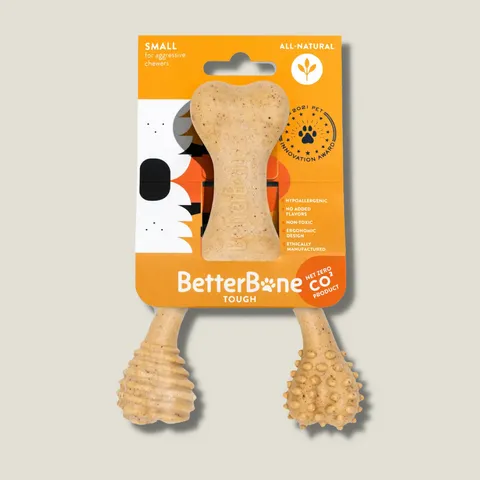If your furry friend is an enthusiastic and powerful chewer, finding toys that can withstand their chompers can be a real challenge. Many dog owners struggle to find durable and safe options for their aggressive chewers. This guide explores the best natural chews designed to satisfy your dog’s chewing instincts while ensuring their safety and well-being.
Understanding Aggressive Chewing in Dogs
Aggressive chewing is more than just a playful nibble. It involves intense, persistent chewing that can quickly destroy toys. But what causes it?
- Boredom and Anxiety: Chewing can be a way for dogs to relieve boredom or anxiety.
- Teething: Puppies often chew aggressively to alleviate discomfort from teething.
- Natural Instincts: Chewing is a natural behavior for dogs, helping to keep their teeth clean and jaws strong.
It’s crucial to understand the reason behind your dog’s chewing to address any underlying issues and choose the right type of chew. To help an anxious dog, consider exploring options like chew toys for puppies under 3 months to soothe and comfort them.
Why Choose Natural Chews?
When it comes to aggressive chewers, safety is paramount. Natural chews offer several advantages over synthetic alternatives:
- Digestibility: Natural chews are generally easier for dogs to digest than plastic or nylon toys.
- Fewer Harmful Chemicals: They are less likely to contain harmful chemicals or additives that could be detrimental to your dog’s health.
- Environmental Friendliness: Natural chews are often more sustainable and eco-friendly.
 A happy dog chewing on a bully stick
A happy dog chewing on a bully stick
Key Considerations When Selecting Natural Chews
Before introducing any chew, keep these points in mind:
- Size Matters: Ensure the chew is appropriately sized to prevent choking hazards.
- Supervision is Key: Always supervise your dog while they are chewing to monitor their behavior and remove any small pieces that break off.
- Know Your Dog: Consider your dog’s chewing style and preferences when selecting a chew.
Top Natural Chew Options for Aggressive Chewers
Here are some of the best natural chew options, known for their durability and safety:
1. Bully Sticks
Bully sticks are a popular choice for aggressive chewers due to their toughness and digestibility. They are made from dried bull pizzle and offer a long-lasting chewing experience. Choose thicker bully sticks for more determined chewers. It is essential to monitor your dog while they enjoy their bully stick and remove it when it gets down to a small size to prevent swallowing.
2. Tendon Chews
Beef tendon chews are another excellent option. They are tough, flavorful, and can help promote dental health by scraping away plaque and tartar as your dog chews. As with bully sticks, supervise chewing and remove small pieces.
3. Antlers
Deer or elk antlers are naturally shed and offer a long-lasting chewing experience. They are rich in minerals like calcium and phosphorus, contributing to your dog’s overall health. However, be cautious, as antlers can splinter. Avoid giving them to dogs with dental issues, and supervise chewing closely.
 A happy dog chewing on a bully stick
A happy dog chewing on a bully stick
4. Yak Chews
Also known as Himalayan cheese chews, yak chews are made from yak and cow milk. They are a very hard and long-lasting option, suitable for determined chewers. However, due to their hardness, they can pose a risk to dogs with sensitive teeth. Soak the small end in warm water to soften it and prevent splintering, or consider a safer alternative. To help calm an anxious dog, you may want to chew toys for puppies under 3 months.
5. Veggie-Based Chews
For dogs with allergies or sensitivities to animal products, veggie-based chews made from sweet potato, pea flour, and other natural ingredients can be a good alternative. These chews are often softer than other natural options, making them suitable for dogs with dental issues or puppies.
Alternatives to Consider
If you’re concerned about the potential risks associated with certain natural chews, consider these alternatives:
- Durable Rubber Toys: Look for rubber toys specifically designed for aggressive chewers. These toys are made from tough, non-toxic materials and can withstand intense chewing.
- Rope Toys: Rope toys can provide a good chewing outlet, but be sure to choose ones made from durable materials and supervise your dog to prevent them from ingesting the fibers.
Conclusion
Finding the right chew for an aggressive chewer can be a process of trial and error. By understanding your dog’s chewing habits and considering the factors outlined in this guide, you can choose chews that are both safe and satisfying. Always prioritize natural, digestible options, supervise chewing sessions, and consult with your veterinarian if you have any concerns about your dog’s chewing behavior or dental health.
